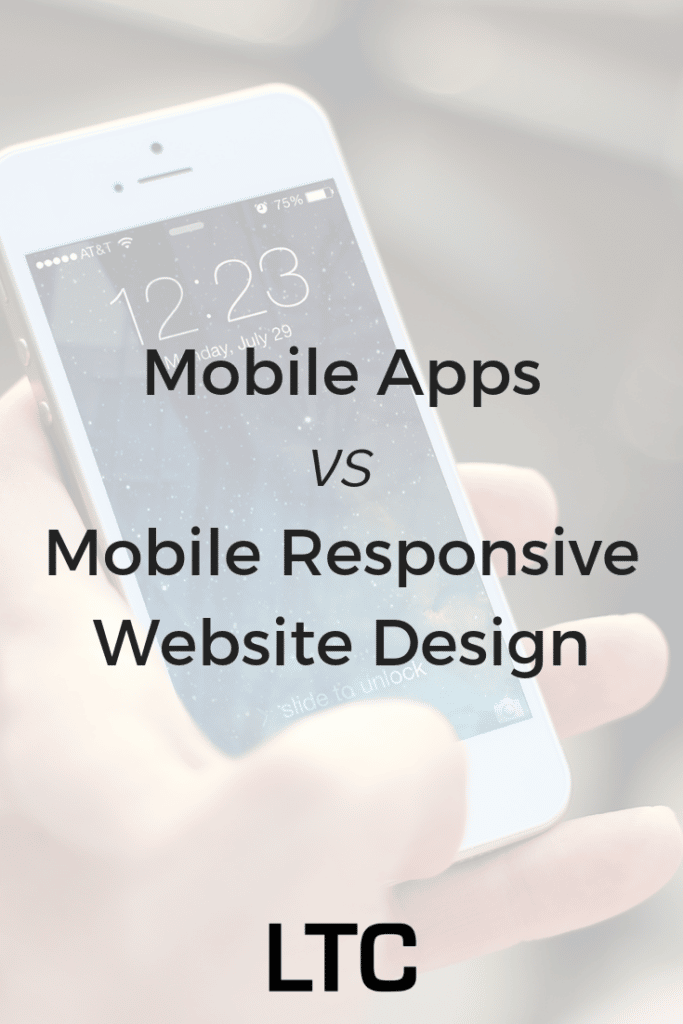In our previous blog article, we discussed the reasons, cost, and cases for developing mobile apps. However, depending on your business, a mobile app may not be the answer. A mobile responsive website could be what you’re after instead. Or perhaps your business would benefit from both. In this week’s article, we’re diving into the differences between mobile apps and responsive websites, pros and cons of both, and what is best for your business.
Differences between Mobile Apps and Mobile Responsive Websites
It may surprise you to know that responsive (or mobile) websites are just like any other – they use HTML pages making them accessible from any browser or device. While website design used to be focused on how the website looked on a browser, a massive shift toward mobile design and functionality has taken place over the last few years.
A responsive site uses a programming language called CSS that allows the website content to be adjusted based on the user’s screen size and dimensions. Mobile responsive design has become so important that Google now incorporates the mobile-friendliness of your website into their search engine optimization (SEO) algorithm. This affects your placement in the coveted top Google search positions.
A mobile app, on the other hand, is a software application developed for different operating systems (iOS, Android, and Windows) that can be downloaded to a smartphone or tablet. They work differently than responsive websites in that they are typically used not to search out new customers but to streamline a function. The best mobile apps are not complex, have a shallow depth of navigation, and a great user experience.

Top Reasons to Consider a Mobile Responsive Website:
- There are no downloads. Users don’t have to access an app store to download your website.
- Potential customers begin their online search on Google or another search engine. They don’t start their search from an app store. If you want to be found online, a website is an absolute must. Even those who find apps via store searches often visit the app website to learn more shortly after viewing.
- A mobile-responsive website can be developed much more quickly and affordably than an app. They are also much easier to update later as they work across all browsers and devices. App development and updates are highly segregated based on operating systems.
Top Reasons to Consider a Mobile App:
- You’re looking to the future. Mobile use is only going to continue to rise. Included in this rise is the amount of time consumers are spending on native applications as compared to searching within browsers.
- Your business and customers would benefit from a specific app function. E-commerce, ordering, banking, personal or business account details, and appointment setting are just a few of the functions that drive both app use and customer retention. A mobile application shouldn’t mirror your website. It should be simple in nature and allow your customer to quickly and easily utilize the main function(s).
- Offline availability is important to your team or customer. Unlike responsive websites, mobile applications do not depend on internet access. Many operations in an app can be accessed while in airplane mode or offline. If this is critical for you, a mobile app is just the tool!
Which do I need for my business?
Responsive websites and mobile applications may seem similar, but they are actually very different in terms of user experience and functionality. Many, if not most, businesses have a website as the face of their business. Even those businesses identifying as an application – including Instagram. To choose which is right for your business, or if both are required, it’s important to note the purpose, your customer, and how often each may be used.
For affordability purposes, website development is (in most cases) going to be the more cost-effective option. For performance purposes, a mobile app is going to hold the value in functionality and user experience.
As we’ve mentioned, there is no reason to choose only one option. The best decision for your business involves putting yourself in the shoes of your customers and making their interaction with your company as seamless as possible. What does this look like?
Interested in learning more about mobile app or responsive website development? You can count on our team to deliver a fast, friendly, and affordable solution. We’d be happy to provide a free, no-pressure consultation!

